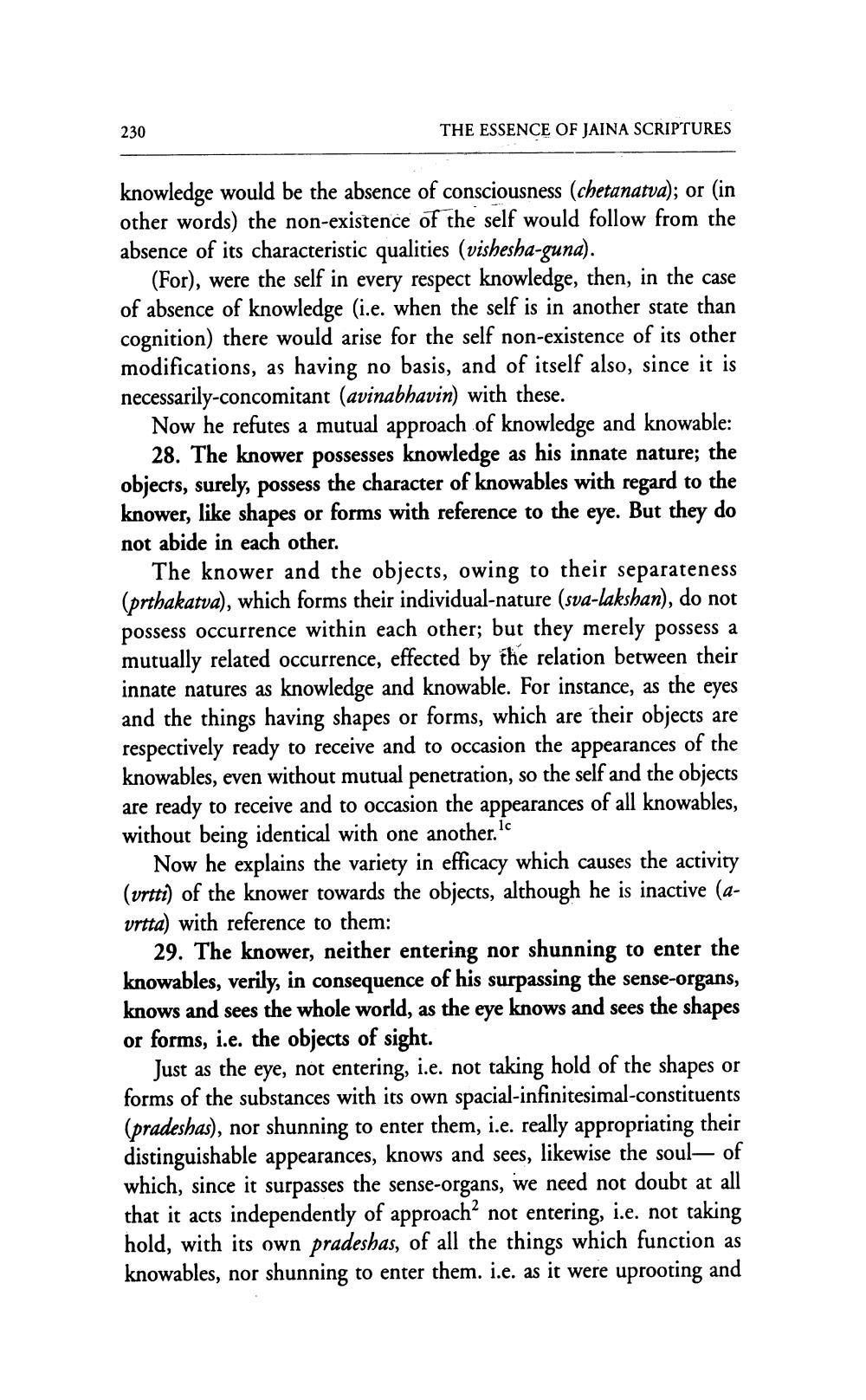________________
230
THE ESSENCE OF JAINA SCRIPTURES
knowledge would be the absence of consciousness (chetanatva); or (in other words) the non-existence of the self would follow from the absence of its characteristic qualities (vishesha-guna).
(For), were the self in every respect knowledge, then, in the case of absence of knowledge (i.e. when the self is in another state than cognition) there would arise for the self non-existence of its other modifications, as having no basis, and of itself also, since it is necessarily-concomitant (avinabhavin) with these.
Now he refutes a mutual approach of knowledge and knowable:
28. The knower possesses knowledge as his innate nature; the objects, surely, possess the character of knowables with regard to the knower, like shapes or forms with reference to the eye. But they do not abide in each other.
The knower and the objects, owing to their separateness (prthakatva), which forms their individual-nature (sva-lakshan), do not possess occurrence within each other; but they merely possess a mutually related occurrence, effected by the relation between their innate natures as knowledge and knowable. For instance, as the eyes and the things having shapes or forms, which are their objects are respectively ready to receive and to occasion the appearances of the knowables, even without mutual penetration, so the self and the objects are ready to receive and to occasion the appearances of all knowables, without being identical with one another.
Now he explains the variety in efficacy which causes the activity (vrtti) of the knower towards the objects, although he is inactive (avrtta) with reference to them:
29. The knower, neither entering nor shunning to enter the knowables, verily, in consequence of his surpassing the sense-organs, knows and sees the whole world, as the eye knows and sees the shapes or forms, i.e. the objects of sight.
Just as the eye, not entering, i.e. not taking hold of the shapes or forms of the substances with its own spacial-infinitesimal-constituents (pradeshas), nor shunning to enter them, i.e. really appropriating their distinguishable appearances, knows and sees, likewise the soul of which, since it surpasses the sense-organs, we need not doubt at all that it acts independently of approach? not entering, i.e. not taking hold, with its own pradeshas, of all the things which function as knowables, nor shunning to enter them. i.e. as it were uprooting and




